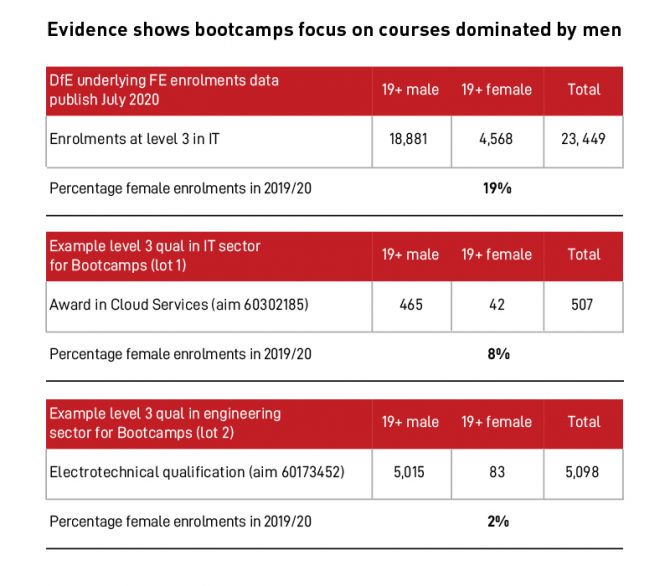The FE white paper gives colleges the chance to become high-level providers of technical education as in other countries, writes Ewart Keep
Last week’s long-awaited FE white paper sets the key strategic priority of higher-level technical skills and sub-degree provision.
This is an important focus. Research by Professor Paul Lewis at King’s College London shows that in some areas of high-tech manufacturing, shortfalls in technician training create a significant bottleneck in the ability of many companies to adopt new technologies and to innovate.
International comparisons also show that England has a higher level skills provision gap at sub-degree level than it should.
As the Augar review underlined, most other developed countries have a stream of what is termed “short-cycle” tertiary provision (ie shorter than a full bachelor’s-level degree). This is often delivered not in a university, but in a specialist institution.
We, by contrast, have spent the past 15 to 20 years trying to plug every skills gap above level 3 with university-delivered degrees.
But colleges are well placed to deliver growth in higher technical education. Now is their chance.
The white paper offers the sector opportunity to develop an agile, realistic and cost-effective approach.
In many instances this will mean that individual colleges will need to specialise their provision in subject areas where they have a comparative expertise.
The white paper offers the sector opportunity to develop an agile, realistic and cost-effective approach
They will need to cooperate with other colleges to deliver tailored skills plans that the government hopes will meet local skills needs.
It will also mean strengthening links between colleges and universities, so that progression through to degree-level and masters’ courses can be created.
In Scotland, such “articulation” agreements between colleges and universities are common. In some instances, these links are becoming closer. For example in Aberdeen, NE College and the Robert Gordon University have created a cooperative arrangement with a common prospectus and seamless integration of provision across the two institutions.
Many of the skills that employers say they need are acquired through intermediate or higher technical qualifications – but not enough young people pursue this path.
This means that careers’ support and student finance will also be critical to the success of the white paper. It’s not just about building progression pathways for young people, but also about opportunities for adults to gain the skills they need to progress in work at any stage of their lives.
Colleges can only ensure people can get the skills they need if it is made easier for them to do so, with many existing barriers broken down – from lack of flexibility to lack of funding.
Meanwhile, the white paper’s focus on higher-level vocational skills also offers colleges a new starting point for expanded innovation support, particularly with smaller companies.
Colleges already work closely with employers, but there are measures in the paper that could allow them to play a bigger role.
The UK has a long tail of poorly performing businesses, many of them lacking the managerial skills and capacity to organise even basic activities.
In the medium term there is much that colleges can do to help. For instance, they can help to support local employer groupings to enhance workplace learning by providing training-the-trainer services.
They can also offer more flexible short courses in basic aspects of management such as finance, human resources, ICT, and so on.
With the right investment and oversight there will be fertile ground for colleges to develop and grow this collaborative offering – especially through the proposed “college business centres”.
By putting employers at the heart of the system, the government has recognised this pivotal business support role for colleges.
Meanwhile the independent commission on the College of the Future has made it clear that colleges must work together more.
We need an education and skills system that is truly joined up. I hope this white paper signals the start of moving in that direction.

